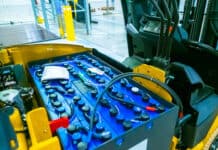
By John Clifford
As a facility manager, you must take into account a lot of moving parts. While the daily task of keeping an eye on employees and equipment can be challenging, if you know how to get the most out of your equipment, then you can give more time and attention to other matters.
To get the most out of your equipment with engines, they need to be up-to-date. You can avoid problems before they start by understanding the best way to maintain your equipment. This will not only save you money in the long run, but headaches along the way.
Here, we will review some of the best ways to maintain and get the most out of your equipment, such as skid steers, forklifts, school busses, generators, water pumps, tractors, and more.
1. Keep It Clean
The best way to get the most out of your equipment is to adhere to a scheduled cleaning regimen. Equipment that collects dirt will not only work less efficiently, but it will have a shorter life span than equipment that is cleaned regularly.
This is especially true in places with extreme climates. Harsh winters can beat up equipment and take life off of them before you know it. This is a result of the wintery conditions, and also because of the materials used to help with extreme conditions, such as road salt during the winter.
2. Keep It Calm
If using an engine, such as a CAT 3306, avoid the temptation to rev it out of control. Having powerful equipment in your grasp can be exhilarating, but the more you push it, the less life you will get out of it.
For instance, it might be fun to push an engine to see how quickly it can go from gear to gear, but the more you do that, the less life you will get out of your engine. Instead of revving an engine up and changing gears quickly, go for the slow approach, and appreciate how much more life you get out of your equipment.
3. Keep It Flowing
A great way to get the most out of your equipment and your engines is to make sure that you have them updated with newer pieces. A great way to do this is to make sure they have up-to-date air intake systems.
Having an updated flow kit will allow your engine to work with more power with less effort. Newer air kits are better at drawing in air and condensing it, and the more compressed the air is, the more power the engine can produce.
By keeping your equipment upgraded, you will be able to hold on to your equipment for longer, saving you both time and money.
4. Keep Your Upgrades Consistent
If you are going to upgrade your engines with new air intake systems, then you’ll want to make sure that the rest of the technology is up to snuff.
One of the first things to consider with this is changing your fuel injectors when you change your intake system.
These two works in tandem, so it is no surprise that for one to work at full capacity, you need the other to be doing so as well.
New fuel injectors will allow more fuel to reach the engine, which will allow the air intake valves to do their job that much better. By having an underperforming engine, you could be affecting the performance—and life—of your equipment.
5. Keep Up With The Exhaust
Your equipment isn’t fully up to date unless you have the proper exhaust system to go with it. This is not to minimize the noise of your machine but to make sure that the exhaust flow of your system is working properly.
This will improve the horsepower of your equipment and improve its lifespan of it.
Clifford is a managing partner at Big Bear Engine Company, which has deep roots in the heavy-duty diesel industry — most notably in the remanufacturing and machining of large diesel engines. Their master engine builders all have 30+ years of experience building and working on diesel engines. They specialize in three medium-duty engine models: Cummins 4BT, Cummins 6BT and Caterpillar 3306. The company has also established itself as an industry leader catering to the 4BT Jeep Swap and Off-Roading Communities.



















![[VIDEO] Collect Asset Data at the Speed of Walking a Building](https://facilityexecutive.com/wp-content/uploads/2024/02/maxresdefault-324x160.jpg)